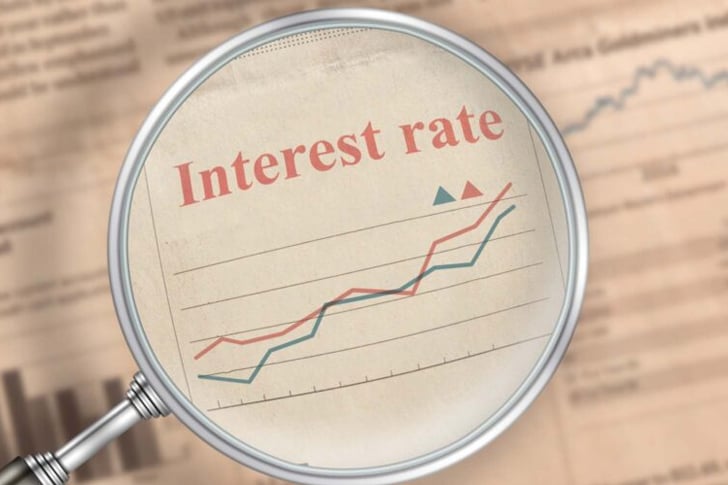Leveraging Home Equity Loans with Smart Collateral Strategy
Unlocking the value of your home can be a strategic move to bolster your finances. Understanding how to use home equity loans effectively is key to benefiting from your property's worth.

When it comes to leveraging the equity built up in your home, there’s a fine line between seizing an opportunity and overextending your financial reach. A home equity loan allows homeowners to borrow against the value of their property, but it’s not without risks.
To ensure you’re using these loans to your advantage, here's a guide complete with advice and tips for a smart collateral strategy.
Understanding Home Equity
Firstly, it’s crucial to understand what home equity is. It’s the difference between your home’s current market value and the outstanding balance of all liens on the property (e.g., your mortgage). As you pay down your mortgage or your home’s value appreciates, your equity increases.
Types of Home Equity Loans
There are generally two types of home equity loans: lump-sum and lines of credit (HELOC). The former gives you a one-time cash payment with fixed interest rates, while a HELOC provides a credit line you can draw from, typically with variable rates.
Evaluating the Need
Before tapping into your home equity, clearly define why you need the loan. Is it for home improvements, debt consolidation, or investing in a business? Ensure the use of this money will bring a return, either through increasing the value of your property or by growing your wealth in another way.
Calculating the Risk
Remember, your home is on the line. Defaulting on a home equity loan can lead to foreclosure. Assess your job security, emergency savings, and the stability of your income. If there’s any doubt about your ability to repay, reassess whether this is the right move.
Interest Rates and Loan Terms
Shop around for the best rates and terms. Comparing offers from multiple lenders can lead to significant savings over the life of the loan. Consider the pros and cons of fixed versus variable interest rates based on your financial outlook and current market trends.
Minding the LTV Ratio
The loan-to-value (LTV) ratio is a critical factor. Lenders typically allow you to borrow up to 85% of your home’s value, minus any outstanding mortgage balance. The lower your LTV ratio, the more favorable the loan terms you might secure.
Reading the Fine Print
Look out for additional fees, prepayment penalties, or balloon payments. Understand every facet of the loan agreement before signing, as hidden costs can turn an attractive offer into a financial burden.
Planning for Repayment
Have a repayment plan in place. Align the loan term with your ability to repay and your financial goals. Avoid stretching the loan too far into the future, as prolonged debt can interfere with retirement plans and other long-term financial objectives.
Using Equity for Home Improvement
Investing in home improvement can be a wise choice, as it often increases home value, translating to more equity down the line. However, opt for renovations known for good returns on investment, like updating kitchens or bathrooms.
Consolidating Debt
Using home equity to pay off high-interest debt is a common strategy. By consolidating your debt with a lower-interest loan, you can potentially save thousands in interest payments. Be vigilant, though—this converts unsecured debt into secured debt, which carries the risk of losing your home.
Emergency Funds vs. Equity Loans
While it may be tempting to use home equity as an emergency fund, traditional savings are typically safer. Home equity should not replace an emergency fund but can serve as a backup if absolutely necessary.
Tax Implications
Under the Tax Cuts and Jobs Act, interest on home equity loans is only deductible if used for buying, building, or substantially improving the taxpayer’s home that secures the loan. Consult with a tax advisor to understand the implications for your specific situation.
Investing in the Future
Some homeowners might consider using home equity to invest in stocks, real estate, or a business venture. While this could lead to greater wealth, the volatile nature of investments means you risk losing capital alongside your home if those investments fail.
Protecting Against Market Fluctuations
Real estate markets can be unpredictable. Borrowing against home equity during market peaks can be risky, as a downturn might leave you owing more than your home is worth. Consider the timing and market conditions before proceeding.
Making Smart Choices
Every financial decision impacts your overall wealth. If a home equity loan fits into your long-term financial plan and you’re able to manage additional monthly payments comfortably, it could be a savvy move. Always weigh the potential upsides against the inherent risks.
Using a home equity loan strategically involves a careful balancing act between leveraging opportunities and managing risks. By following this advice, you can make informed decisions that help you use your home’s value to its full advantage while preserving your financial security.
-
1

Ultimate Feast for the Eyes: Top Cooking Shows Every Foodie Must Watch!
-
2

Maximize the Lifespan of Your New Dental Implants with Expert Care Tips
-
3

Ascending with Ease: The Revolutionary Journey of Stair Lift Technology
-
4

Maximizing Your Walk-In Tub's Lifespan: The Ultimate Guide to Enhanced Performance and Durability
-
5

Unlock Bigger Savings: Master the Art of Using Your Gas Rebate Card!









